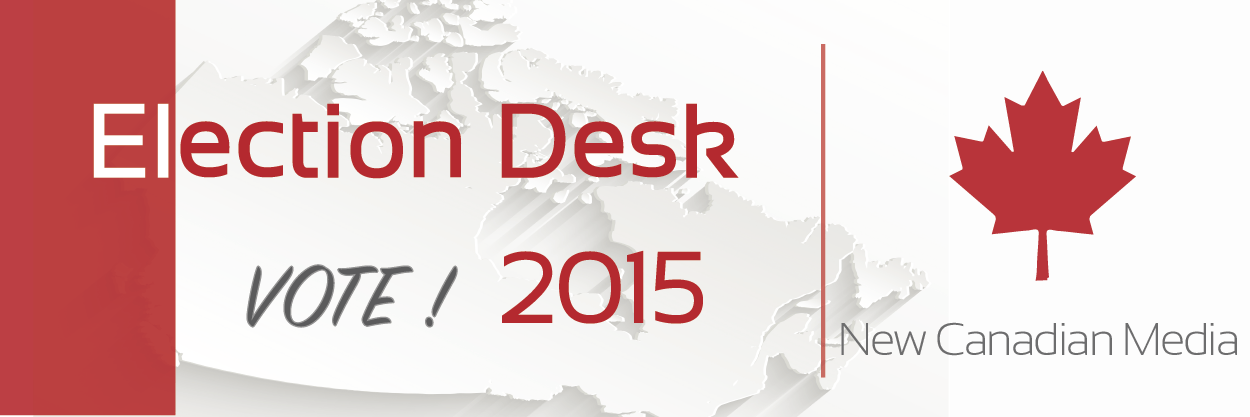 Prime Minister Stephen Harper’s ‘old stock versus new stock Canadians’ comment during a political debate could very well cost him the election. His political opponents and the media would not let him live it down and seized the moment to brand it as divisive politics and racist.
Prime Minister Stephen Harper’s ‘old stock versus new stock Canadians’ comment during a political debate could very well cost him the election. His political opponents and the media would not let him live it down and seized the moment to brand it as divisive politics and racist.
Was he intentionally creating the ‘them versus us’ scenario or was it a slip? Come Oct. 19 Canadians will have their say.
From the peegate to homophobia, radicalization to the niqab, this federal election campaign has put ethnic candidates and immigrant communities in the spotlight.
Today’s voter, however, is more politically aware and active no matter the length of time they have lived in Canada, which means candidates must pay careful attention to their election speak.
“There is no such thing as old stock and new stock Canadians. Everyone has the same concerns about health care, jobs and the economy.”
New Canadian Media spoke with three experienced campaign advisers about what candidates should never say to immigrant voters both now and in future elections.
Neethan Shan is one of the two first Tamil Canadians to be elected to any public office in Canada. He was a public school trustee with the York Region District School Board and former president of the Ontario New Democratic Party.
Abbas Baig has worked with a cabinet minister, a member of Parliament (MP) and a member of provincial parliament (MPP) and as a campaign adviser. He is now a licensed immigration consultant and works on citizenship and immigration issues.
Sarbjit Kaur is a long-time political strategist who has worked in journalism and at Queen’s Park. She is currently working with several Liberal candidates in Brampton and Mississauga.
You’re different from the other Canadians:
“Doublespeak is disrespectful,” says Kaur. “Never say something different to the community and the general public or mainstream media with respect to your policies. Their concerns are the same as the other Canadians.”
“There is no such thing as old stock and new stock Canadians. Everyone has the same concerns about health care, jobs and the economy,” adds Baig, who says that it is comments like those that “drive a wedge between Canadians.”
“When issues arise, be honest,” advises Kaur. Voters are more politically informed thanks to plethora of ethnic press and media channels. “A lot of the news is available in their own language so they know what’s going on,” she adds.
Thank you for coming to Canada:
“While this might not be intentional, it is a condescending type of comment where the host and guest type of dynamics gets reinforced. It implies that this is your space while we are supposed to believe that everyone is here to build the country together,” says Shan.
“It would be preferable to acknowledge contributions in a manner that would not limit social engagement.”
I can help solve your community’s problems:
Both Baig and Kaur agree that it is not a good idea to try and appease a niche group. They warn candidates not to compromise on the party’s principles, or their own, just to get votes.
“[K]eep the Canadian Charter of Rights and Freedoms in mind.”
“In trying to appease one group you could lose another,” says Kaur. “So keep the Canadian Charter of Rights and Freedoms in mind.”
Baig acknowledges that there might be some issues that are specific to certain groups like spousal sponsorship and family reunification. “At this time it is important to use the party policies and platform as your guide,” he advises.
“Diversifying outreach efforts and using different types of media, for example, might be a better approach,” Shan says. “After all people within a particular community can also have different needs on account of generational differences.”
Vote for me because I have the same background as you:
“There is nothing wrong in organizing communities to have people who are reflective of their interests so long as the individuals are not seen as working against the interests of those communities,” says Shan.
“[D]on’t take votes for granted just because you are from the community.”
“But don’t take votes for granted just because you are from the community,” cautions Kaur.
“There are no short cuts. While people would like to know that a candidate understands their issues, you still have to make your case, earn the credentials and show that you are involved in the community.”
Shan agrees.“People understand that candidates might look like them, but their interests may not be same,” he says.
I don’t like you:
This is a rule for life not just politics – never indulge in a personal attack.
“It will affect your reputation for the rest of your life,” says Kaur.
“It’s not worth getting carried away and ruining relationships on account of the elections. Take the higher road whether it is a voter or your opponents.”
I promise to get this done for you:
Both Baig and Kaur advise candidates against overpromising and overstepping lines of jurisdiction.
“Any results earned by overpromising can only be short-lived.”
For instance, the new sex-ed curriculum is a burning issue in many ethnic communities in the Greater Toronto Area and a few candidates have used this as leverage, though not openly.
This is both misleading and dishonest. “Any results earned by overpromising can only be short-lived,” explains Kaur.
Shan has a different point of view though.
He says that candidates are clear about their limitations in the three levels of government and there is nothing wrong in saying they can advocate for a particular issue.
However, Shan does agree that, “it is wrong to make promises and leverage a particular issue for political advantage.”
As political leaders and their candidates pull out all the stops over the final weekend of campaigning, voters are reminded to evaluate their platforms in terms of what will benefit the country as a whole. More importantly, Canadians – new and old – are encouraged to exercise their democratic rights and vote in what could be one of the closest elections to date.




